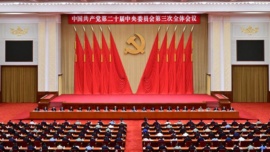China continues to support Macau’s growth and the SAR remains relatively insulated from China’s macroeconomic issues, CBRE Equity Research has pointed out.
This commentary was based on discussions between CBRE analysts John DeCree and Max Marsh with Christopher Ip, the chief financial officer of gaming operator SJM Holdings.
“Investors’ primary concern with Macau was unsurprisingly but overwhelmingly related to the regulatory environment and China risk. Given SJM is the longest running operator in Macau, investors can take some comfort in management’s confidence that China remains supportive of Macau,” the analysts wrote.
The report listed several examples to support this view, including China’s continued expansion of the Individual Visit Scheme (IVS) for travel to Macau and Hong Kong.
At the end of May, China increased the number of cities eligible for IVS from 51 to 59. This follows the addition of Xi’an and Qingdao to the IVS program earlier this year and several other relaxed policies related to business travel and multi-entry trips.
The analysts also highlighted that although investors remain cautious about the economic outlook in China, the rebound of gross gaming revenue (GGR) in Macau in May suggests a reduced correlation between Macau’s recovery and China’s macroeconomic situation.
“Although we wouldn’t suggest Macau is immune to slowing economic growth in China, it has proven more resilient,” the analysts said.
CBRE further pointed out that pent-up leisure demand in China, following a three-year lockdown, could be larger compared to other markets due to the longer duration of the lockdown in China relative to other jurisdictions.
Meanwhile, Macau’s mass market penetration in China remains quite low, but is expected to increase with more relaxed visa policies and improved travel capacity.
The brokerage also indicated that SJM is now institutionalising its business and making ‘a renaissance story’, with the new CFO proactively introducing the company to investors globally.
The company is looking to reposition Grand Lisboa Palace (GLP) to better cater to base mass customers, increase visitation to the property, and identify operating efficiencies. Some of these initiatives include improving retail tenant occupancy and mix, adding new F&B outlets, new marketing initiatives, and cross-asset cooperation.





















